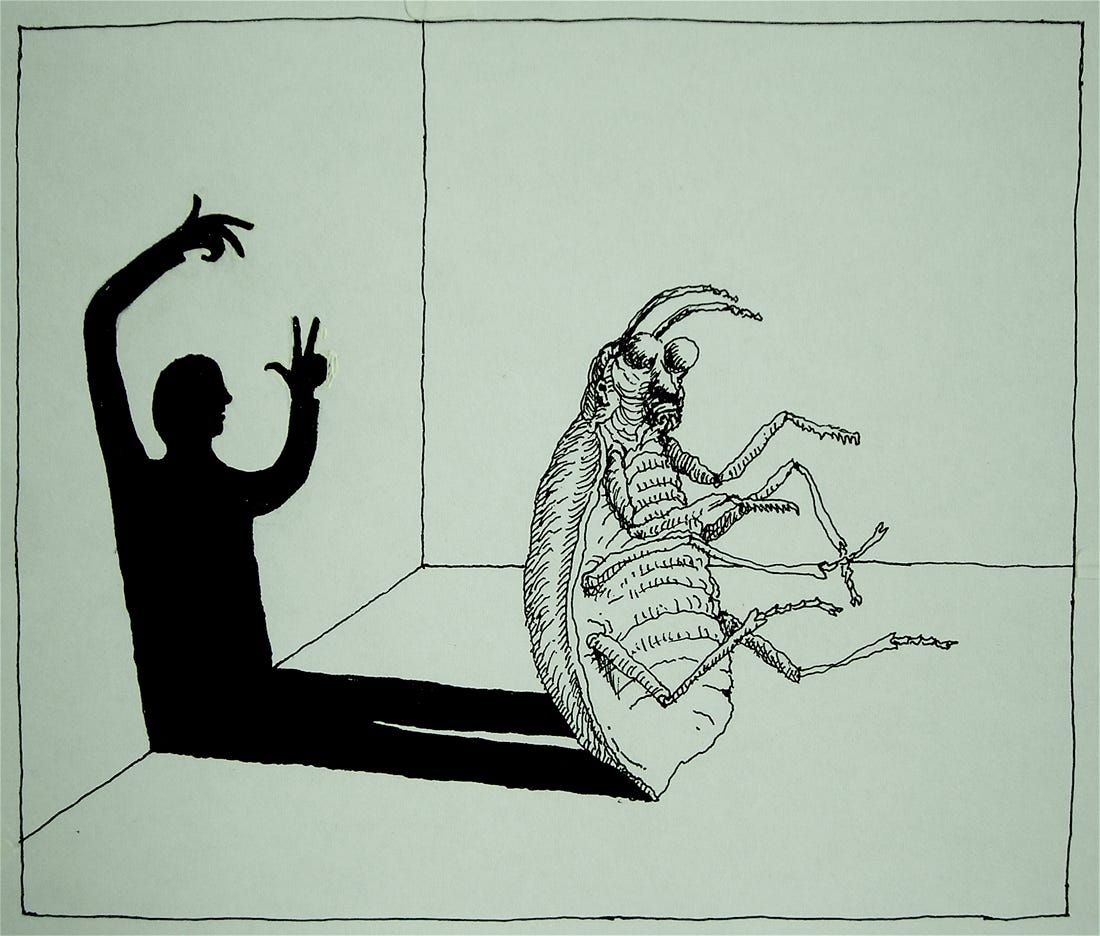The word metamorphosis originates from ancient greek: meta means “after”,”changed” or “beyond” and morphé means “shape”. Metamorphosis is therefore easily defined as a change in shape. As biologists, we all know what biological metamorphosis is: the process by which an animal radically changes its body structure after birth. However, not everything is about science since we weren’t the only ones interested in this phenomenon. The process of shape transformation fascinated poets, writers and philosophers throughout history, each developing their own interpretation of the theme. In this article I want to show you that besides being a biological concept metamorphosis has many more interesting shades.
The most famous classic author exploring this topic is the Roman poet Ovid, who wrote “Metamorphoses”, a latin poem which contains over 250 stories explaining how transitions helped shape our world. Ranging from the origin of the universe to the deification of Caesar, Ovid’s stories contain different types of transformation: from human to animals, objects or constellations, from animal to human and also sex changes (how innovative!).
Ovid’s idea of metamorphosis was based on Greek mythology where metamorphosis consists purely in a physical change in shape, whereas human personality (and soul) is maintained. The general purpose of myths was to explain natural phenomena and human behaviors and, as you may know, Greeks liked to attribute things to gods. Metamorphoses are no exception since in most cases the transformation was induced by a god.
Were gods just going around playing with their powers and transforming people? Well…kind of. Although in the majority of the myths metamorphosis is either a punishment or a reward for human behaviors, there were cases in which gods just wanted to test or deceive mortals. So, be careful while you walk down the street, Zeus might transform you into a frog just for the fun of it!
Metamorphosis wasn’t just a recurring theme in mythology, but was also quite important in literature and philosophy. Kafka’s book “The Metamorphosis” is a staple that I think everyone has heard of during a boring high school class on 20th century literature. But in case you missed it, “The Metamorphosis” is a novella about a guy called Gregor that one day wakes up as a “monstrous vermin” (probably a cockroach). While at the beginning his family tries to take care of him and support his needs, in the end he becomes a liability and Gregor decides to kill himself for the sake of the family.
Gregor’s metamorphosis resembles Greek metamorphoses because he maintains human consciousness, however, he also shows cockroach-like behaviors like hiding in dark places and eating rotten food (ewww). On the other hand, his metamorphosis is quite mysterious since no background information nor some clues are given by the author to explain this sudden change. The most common interpretation is that Gregor’s life was already terrible: he was enslaved by the system and overwhelmed by a job he didn’t like, but had to tolerate to provide for his family. In this case, metamorphosis is perceived as a liberation, not only for Gregor that finally has a good excuse to quit his job, but also for his family that is forced to come up with other solutions and eventually becomes independent of his labor.
In line with the concept that metamorphosis frees you, let me introduce you to Nietzsche, a philosopher of the 19th century with some mind-blowing ideas. Unlike Ovid and Kafka, Nietzsche saw metamorphosis as a psychic transformation rather than a physical one. In his book “Thus Spoke Zarathustra”, he tells how this man descends from his cave after 10 years of isolation as a new elevated person: the “overman” (Übermensch).
The overman is someone that has overcome himself fully and follows no law except the ones he gives himself. He is free of prejudice and master of his own life. Metamorphosis is therefore seen as a way to give meaning to life and elevate towards a more free existence. Nietzsche sees improvement as overcoming your old self (hence the word “overman”). Indeed, he thought that humans are a bridge between animals and overmen: humans started to direct their power inwards to gain self-mastery, but somehow got stuck in the process and their power remained constrained. In another of his works, Nietzsche claimed that humans are part creatures and part creators, so we have the intrinsic ability to reshape ourselves. The overman is someone that is 100% creator and therefore able to change themselves as they wish without constraints.
In the context of literature, metamorphosis has acquired different meanings (from physical to mental transformation) and different interpretations (from punishment to liberation). We all know that animals have the capacity to metamorphosize, but can also humans undergo a similar transformation? I think that human metamorphosis is a potential: potential to become the person you want to be, potential to change your life, potential to disappear for a while and re-emerge as a new person. I see metamorphosis as an opportunity to take your life in your hands and redirect it towards your goals.
I hope this literature class and my philosophical reflections haven’t bored my crazy scientists, but instead has inspired them to look at things from a different perspective. Just like a caterpillar comes out of its cocoon as a magnificent and fascinating butterfly, sometimes stories can help us reshape our thoughts and develop our intellect in new exciting ways.






